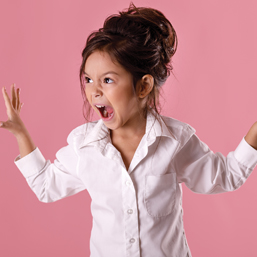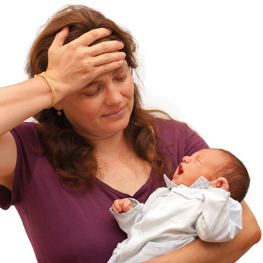



Everyone has to deal with feelings of anger and frustration. While these feelings are normal, it is important to teach kids how to appropriately deal with them. Parents and kids can work as a team to come up with strategies to handle anger and frustration. Working together to prepare a plan in advance will help your child learn how to calm down and discuss why these feelings occurred. Once your child finds a calm-down technique that works best for them, encourage them to use that strategy whenever they start to feel upset or angry.

As social and digital media have increasingly become part of our lives, we know that children are frequently bombarded with imagery and criticism about weight, physical appearance, and ‘ideal’ body types. When it comes to conversations about body image, much of the dialogue and public campaigning has focused on empowering our young girls to practice self-acceptance, healthy and happy living, and body positivity (think of the immensely popular Dove advertisements). And it is undoubtedly important for our daughters to hear and see empowering and celebratory messages about self-love and body diversity. At the same time, young boys are also exposed to similarly negative messages and standards about their own bodies - with much content criticizing boys for being too small or too big, as well content that fosters unhealthy and hyper-critical perspectives about the bodies of girls and women in their lives.

Because I wrote a book about my struggles with postpartum depression after the birth of my first daughter, some people assume that my mental health issues are over. After all, I took medication for eight months, went through talk therapy, and completed my treatment with a healthier mindset and an improved outlook on motherhood - and then I achieved even further closure by publishing my story as a graphic memoir.

Ask a new mom about her actions after giving birth, and you’ll hear a range of behaviors that would probably sound odd to most non-moms: Watching the baby’s breathing, checking the baby monitor dozens of times, keeping an eye on the front door for potential intruders. To new moms, these actions are likely all too familiar. The anxiety that comes with motherhood is something many new moms feel but rarely discuss. And perinatal anxiety - that is, anxiety during pregnancy and the postpartum period - has received limited attention from researchers and health professionals, according to a 2017 review article in The British Journal of Psychiatry, despite the fact that it is highly prevalent. We are, after all, suddenly responsible for tiny, helpless, precious humans. Who wouldn’t be anxious? This can all lead a mom to wonder, How much anxiety is too much?
Calgary’s Child Magazine © 2024 Calgary’s Child